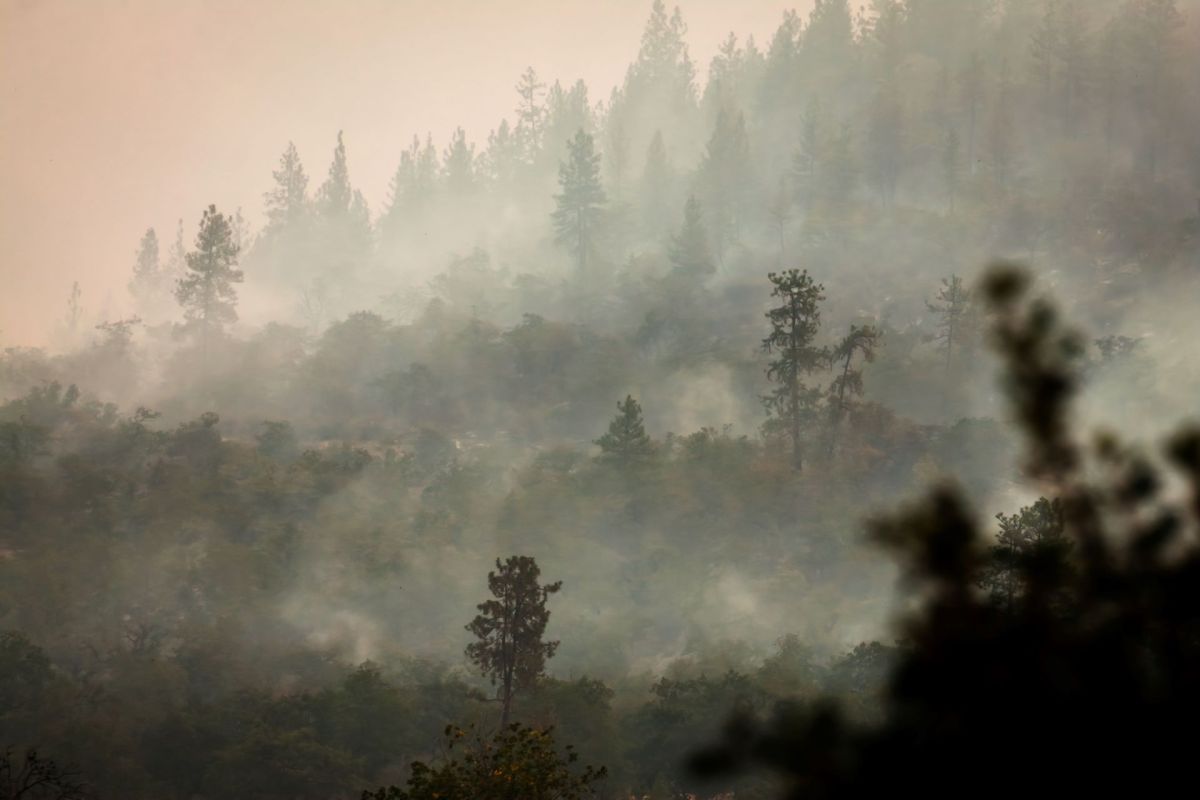In June of 2023, a dermatologist in Boston noticed a huge influx of patients while relentless wildfires were burning in Canada 300 miles away, shedding light on an often overlooked concern.
What's happening?
As the wildfires raged on over the summer, clouds of smoke drifted into the U.S. Northeast and Midwest, triggering air quality alerts for millions, as reported by the Washington Post.
Boston-based dermatologist Shadi Kourosh called attention to the "unusual spike in dermatology visits" she observed at Massachusetts General Hospital during the wildfire outbreak last summer, per Wired.
Kourosh compared data from the Environmental Protection Agency about airborne particulate matter and carbon monoxide levels in Boston to Mass General Brigham hospital system patient records to determine whether higher-than-average air pollution was the culprit.
She and her team found a clear link between high air pollution levels and dermatology visits for the most common type of eczema, atopic dermatitis.
In June 2022, Boston's carbon monoxide levels measured less than 0.2 parts per million, and fewer than 20 clinic visits for eczema were reported. In comparison, carbon monoxide levels jumped to 0.6 parts per million in June 2023 while the wildfires burned, and dermatology visits surged to 160.
Why is this concerning?
People with eczema and other skin conditions may experience flare-ups because of poor air quality.
"A lot of these components of airborne pollution are irritants to the skin," Kourosh told Wired. "People who have eczema have a weakened, more vulnerable skin barrier, and so the pollutants penetrate deeper and trigger the immune system."
The World Health Organization found that 99% of the global population breathes unhealthy air. While skin flare-ups may seem minor, they can be unbearable for some.
"Yes, it doesn't kill anyone, but if you have it severely, you have a horrendous quality of life," Carsten Flohr of the British Association of Dermatologists told Wired.
Research shows that wildfire smoke negatively affects people living in nursing homes with poor ventilation. In addition, exposure to fine particulate matter (PM2.5) has been linked to asthma, cardiovascular problems, cancer, reproductive issues, and neurological disorders.
According to the Western Fire Chiefs Association, wildfires also severely damage the environment by contaminating the air and waterways with hazardous pollutants, releasing planet-warming gases into the atmosphere, and harming plants and wildlife.
What can be done about it?
If your city is under an air quality alert, it's best to stay indoors, close all doors and windows, and run an air purifier if you have one. However, if you have to go outside, you should wear a high-quality mask that can filter air pollutants.
To protect your skin, Kourosh recommended wearing long sleeves and pants outdoors, using mineral sunscreen, and washing your face at night to remove any lingering pollutants, per Wired.
On a larger scale, the Biden administration is considering closing coal plants ahead of schedule and making significant investments in clean energy projects.
If you have a gas stove, switching to an induction cooktop is a great way to reduce indoor air pollution.
Join our free newsletter for weekly updates on the coolest innovations improving our lives and saving our planet.









